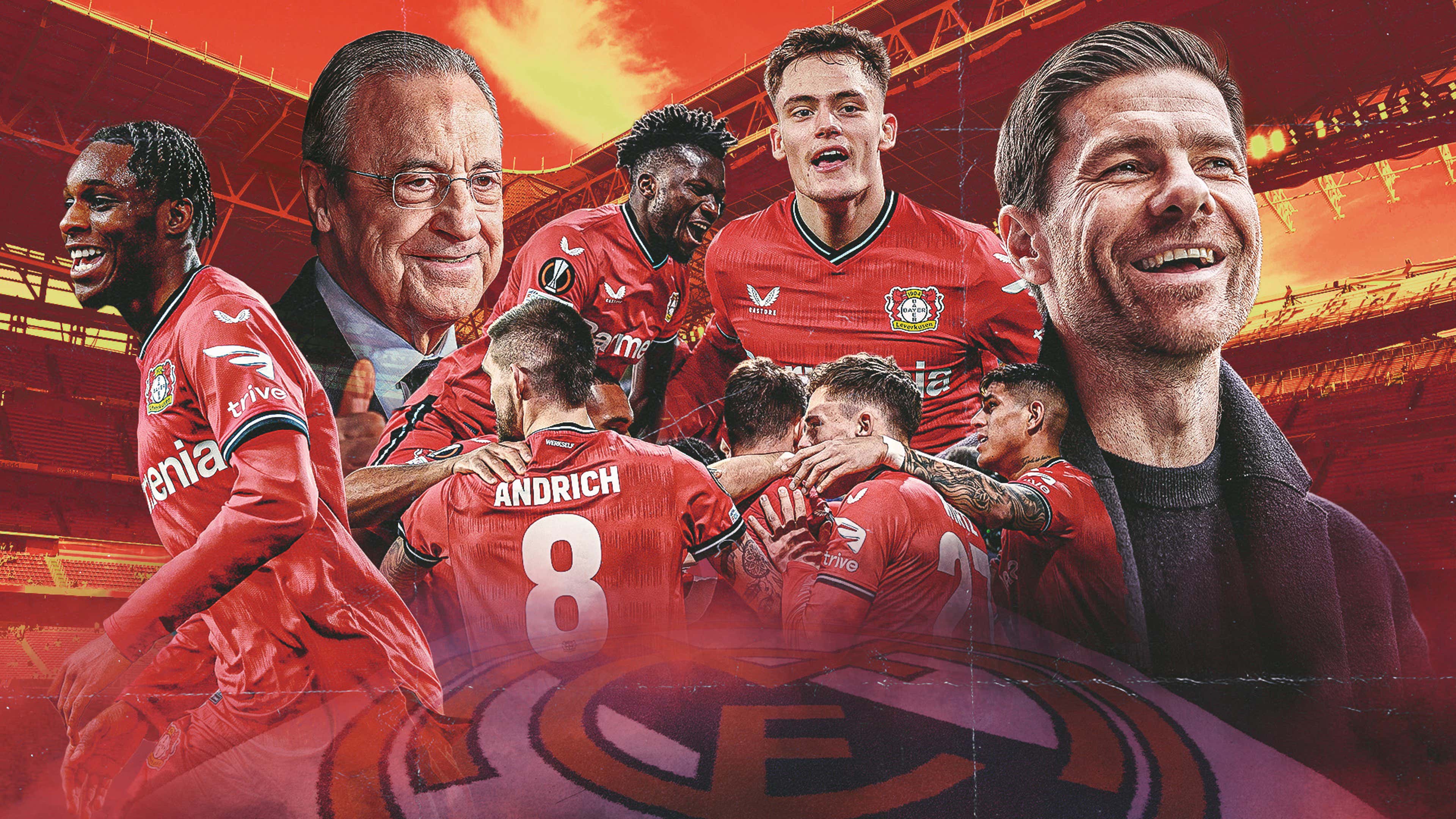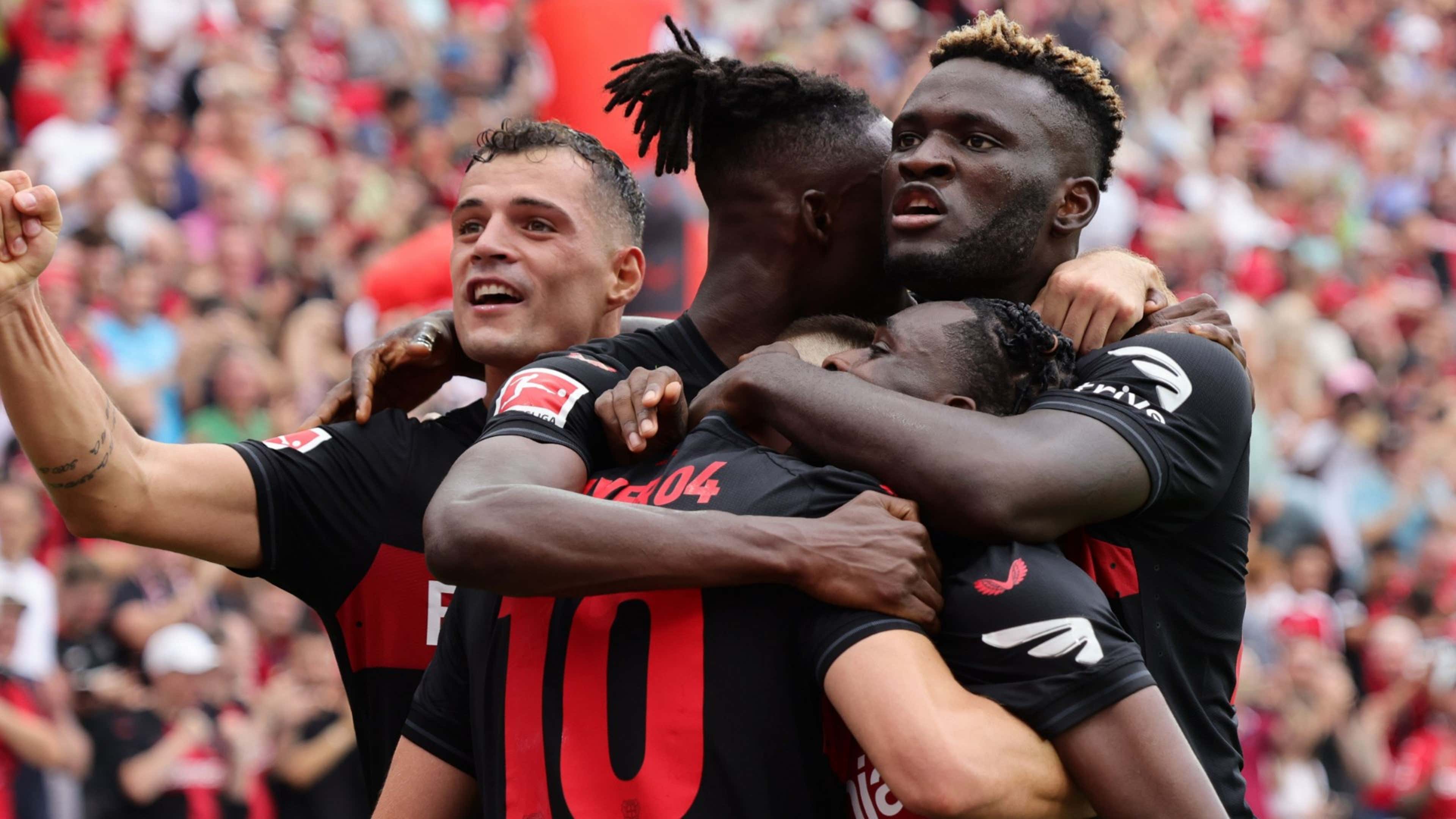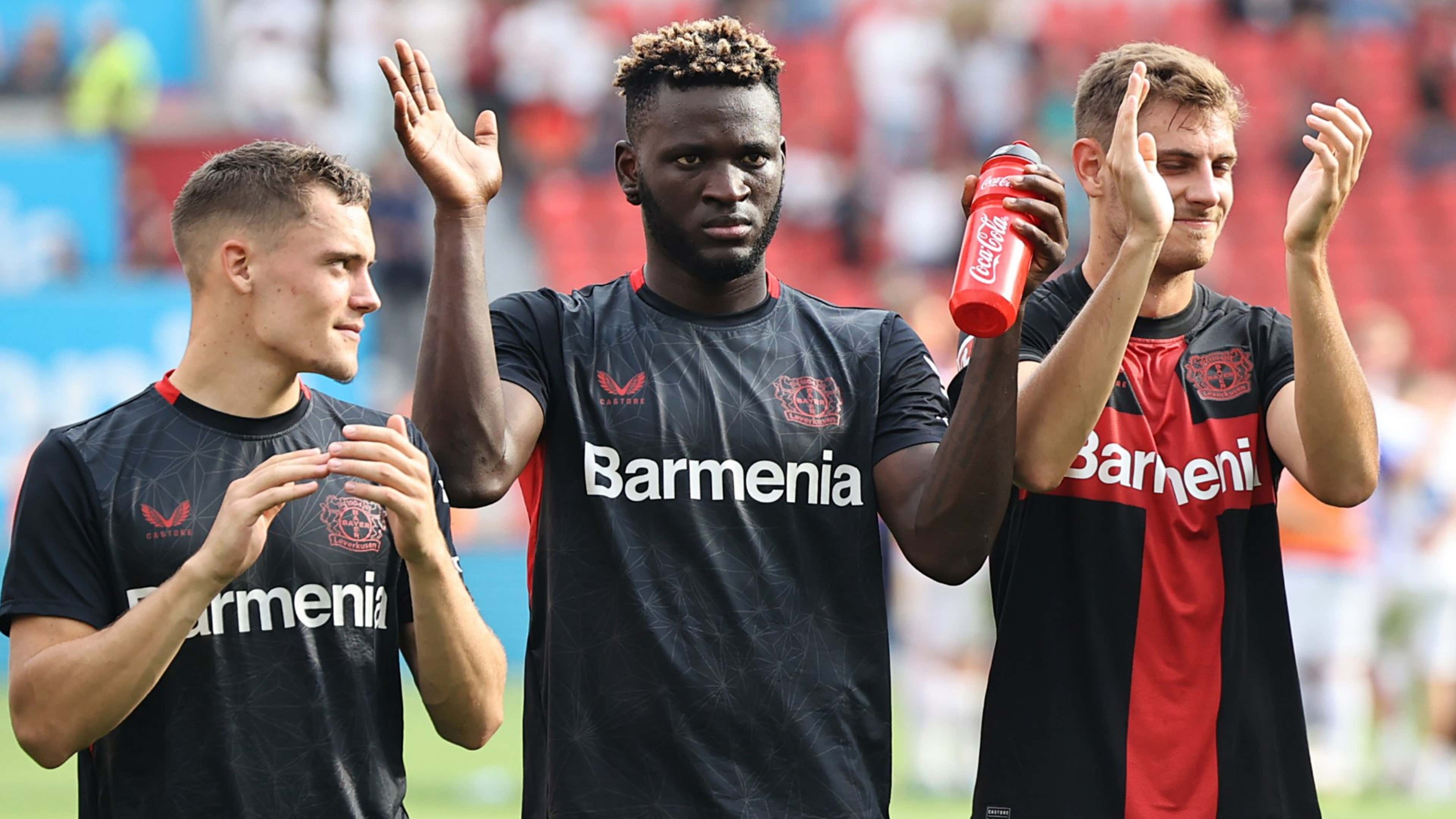The former Blancos player is positioning himself to succeed Carlo Ancelotti, who is expected to leave the Bernabeu this summer.
Earlier this month, a video from Bayer Leverkusen’s practice surfaced. An irate Xabi Alonso criticizes his players for falling short of his expectations in a passing practice in the one-minute footage. The 41-year-old manager intervenes in a fit of rage and sprays the ball around the practice field metronomically while shouting orders to the team.

It was a miniature representation of how Alonso has managed this Bayer team. The Spaniard has been given nearly unrestricted autonomy to overhaul the club since taking over in October 2022. And his authority has done wonders. Leverkusen has improved dramatically over the past year, going from the bottom of the table to looking like Bayern Munich’s most likely Bundesliga rivals, with a promising Europa League run sandwiched in between.
All of this happened because the team is going through a lot of transition. Some upcoming stars have moved on, and they have been replaced by veteran European travelers. Other players, however, have been repurposed and placed in more sensible roles. As a result, a dangerous team managed by a manager who, at this rate, will have a job at a much bigger club next year, will probably only get better.
ALONSO BAYER LEVERKUSEN, XABI Getty Picturestaking charge of a faltering teamGerardo Seoane’s demise was brought on by a defeat to Bayern Munich. Leverkusen’s season in the Bundesliga had gotten off to a bad start under the manager, as his team had only won one of their first eight games. There was hope that a win over Bayern may save the situation and possibly even spark an unusual turnabout. Leverkusen, though, received a beating. Bayern scored its first goal in under five minutes and had three by halftime. A week after Seoane’s dismissal, Alonso was named the new manager, and 24 hours later, Seoane was fired.
.jpg?auto=webp&format=pjpg&width=3840&quality=60)
Of course, there were few expectations. Alonso had previously held only one managerial position, which he held while guiding Real Sociedad’s reserve team to an improbable promotion to the second division of Spanish football. Here was a young but well-liked coach who wasn’t necessarily expected to succeed right away for a team with European aspirations.
Alonso, one of Europe’s best midfielders during his career who played for coaches like Rafa Benitez, Pep Guardiola, Jose Mourinho, and Carlo Ancelotti, swiftly proved that he was more than capable of handling the situation.
In his first game in command, Leverkusen pummeled struggling Schalke, scoring four goals against the team expected to be relegated. The remainder of the year saw uneven results, although victories over Union Berlin and Koln, together with a 2-2 tie with Atletico Madrid in the Champions League, demonstrated Leverkusen’s competitiveness.
Former genuine wonderkid Moussa Diaby, who appeared to have lost his way, found his form again and, combined with lightning-quick wing-back Jeremie Frimpong, helped Leverkusen convert into a threatening team in transition.

However, Leverkusen’s advancements were most noticeable at the opposite end. They were giving up more than two goals each game under Seoane until he was fired. Alonso reduced that number by using a three-man defense, which made Leverkusen much more dependable defensively.
Xabi Mourinho AlonsoSports Scene on CGTNa powerful springThat became especially clear in the season’s captivating second half in 2022–23. Alonso’s team became known as giantkillers both at home and in European tournaments after failing to advance out of their Champions League group. It started with an unlikely victory over heavily favoured Monaco in the Europa League, Leverkusen advancing on penalties after a thrilling 3-2 second leg win away from home.
The return from a serious knee injury of highly-rated playmaker Florian Wirtz defined that contest, the No.10, orchestrating things from the middle of the park, scoring a goal and proving crucial in the build up to two others. A few weeks later, when Leverkusen defeated the advancing Union Saint-Gilloise of Belgium, he had a similar impact.
And although their luck ran out to a predictably dogged Jose Mourinho-led Roma in the semi-finals, Leverkusen showed that, led by Alonso, they could compete in Europe once again.

Things were much better at home. When Bayern visited Leverkusen in early March, they were in excellent shape. They were only five days removed from knocking Paris Saint-Germain out of the Champions League, and although Borussia Dortmund were surging in the league, the defending champions appeared to be well in control of the division they had won for nine consecutive years.
What happened next almost derailed their season, though, as Leverkusen outplayed the Bavarians in the second half, turning in a counter-attacking clinic to deliver a 2-1 victory that was far more convincing than the scoreline suggested.
Hasan Salihamidzic, the sporting director at Bayern Munich at the time, remarked, “I’ve hardly ever seen something like this.” “We made every mistake possible and were thoroughly outplayed by a team that played on Thursday.”
As a result, Leverkusen made a kind of entrance. It was one thing to impress in Europe, but to beat the Bundesliga champions, for the first time since 2019, suggested that Alonso’s Leverkusen were there to stay. They struggled toward the end of the season, going winless in May. Still, Alonso had taken a relagation-threatened side to a sixth-placed finish — all while implementing a system that was scintillating to watch.
tactically astute adjustmentsEventually, attention in Europe shifted to the team. Alonso’s potential departure and transfer rumors dominated the previous summer. He was apparently coveted by Tottenham for their open position before they chose Ange Postecoglu. Their finest player was stolen, and Aston Villa paid €60 million (£52 million/$64 million) for Diaby. A few others almost also departed. Frimpong and Manchester United were mentioned. Targeting Wirtz became apparent for Manchester City. Meanwhile, Piero Hincapie was apparently pursued by Liverpool, who were in need of a center-back.

Naturally, Alonso would remain. Wirtz, Hincapie, and Frimpong all agreed. Undoubtedly, though, the team needed to be restructured. Victor Boniface, Nathaniel Tella, Josip Stanisic, and Granit Xhaka entered the field. Additionally included were Jonas Hofmann and seasoned left-back Alex Grimaldo.
In the meantime, the management changed his system. In order to make up for the loss of Diaby, Xhaka started in midfield alongside Exequiel Palacios, and Wirtz and Hofmann were used as duel-No. 10s. Alonso decided to have his best offensive players tuck inside and support a single center-forward since width was no longer an option for his wide attackers.
Leverkusen’s qualities were excellently matched by Alonso’s new 3-4-2-1 system, which also preserved Leverkusen’s defensive resiliency and verticality in transition. As a result, there have been 11 goals scored in three straight victories to start the season.
2023–2024 Victor Boniface Bayer LeverkusenGetty Picturesan elite strikerThe player they hired to play up front, however, may have been the true revelation. Following his success in Nigeria, Boniface’s first two years in Europe were marred by injury. He suffered two ACL tears, and it took him until 2021 for Bodo/Glimt to make him a regular starter. Boniface, who moved from Nigeria at age 18, has only participated in 100 top-flight European matches by the end of the 2022–23 season.
However, despite the short sample size, his unquestionable offensive ability was not diminished. Leverkusen spent €20 million on Boniface’s services last season because of his seven goals and seven assists for Union Saint-Gilloise. And so far, the investment has been profitable.
With a beautiful half-volleyed goal against West Ham during the preseason, Boniface showed promise. However, he has since erupted. The Nigerian has lived up to the high expectations that come with leading the line for a team that is currently predicted to fight for the title with four goals and two assists in three Bundesliga starts.
“He’s not just a classic striker, not just a bomber – he’s complete,” Alonso said of his No. 9 to Planetsport. “We are pleased with him; he has so far scored four goals, but we anticipate more from him.”

Not for long in Germany, but Alonso is undoubtedly where it all begins and finishes. This team’s manager has taken charge and used his almost uncontrolled power like few others can. There have been several instances where managers have gone too far in using their power against the team. Projects under Mourinho, Antonio Conte, and Arsene Wenger all failed as a result of their poor choices and varied degrees of Machiavellian behavior.
But Alonso appears to have struck the ideal balance. He established a new strategy for a struggling club and responded to significant losses in a number of positions. And while the additions might not immediately scream “title contenders,” he made wise enough investments to keep Leverkusen competitive.
That is fantastic news for Leverkusen’s performance on the field. But it creates a difficulty when seen more widely. Alonso won’t be the Leverkusen manager for very long if he maintains this success. The Spaniard just inked a new contract that would keep him with the team through 2026, and many have noted that Jurgen Klopp’s Liverpool contract will expire in the same year. Alonso’s name is also quite likely to come up during Real Madrid’s search for a new manager as they are ready to say goodbye to Carlo Ancelotti this summer. Though he has already rejected Spurs, better possibilities are undoubtedly on the horizon.
Leverkusen may not win the championship this year, but if they keep winning, they may challenge Bayern in the future. Their matchup on Friday should demonstrate how evenly matched the two teams are. Naturally, that would depend on Alonso staying with the team. They might not enjoy this privilege for very long.